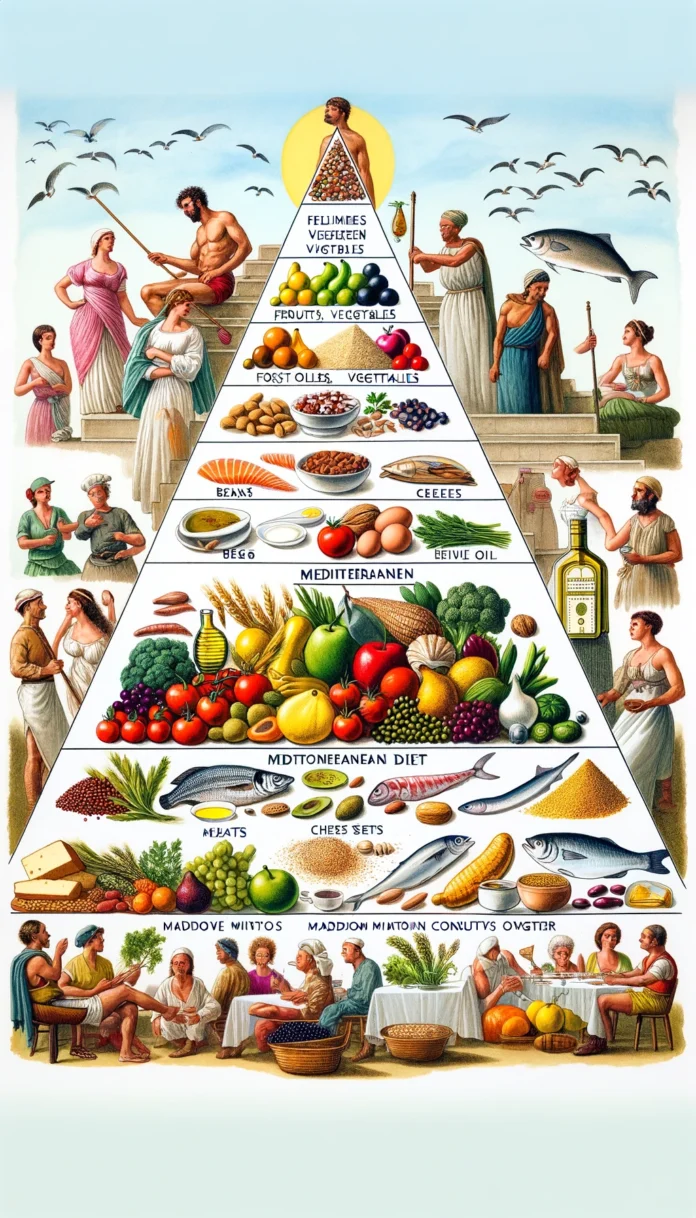The Mediterranean diet consistently secures the top spot in the U.S. News and World Report’s annual ranking of the best diets. This prestigious recognition is earned through a rigorous evaluation process conducted by a panel of experts, who judge various eating plans and popular diets based on their health benefits, effectiveness, and ease of adoption.
Furthermore, the Mediterranean diet is widely acclaimed as one of the healthiest dietary patterns by numerous health organizations and dietitians. But does it truly live up to its glowing reputation? Let’s delve deeper and find out.
What is the Mediterranean diet?
“Mediterranean diet” is a broad term inspired by the diverse eating habits found in the countries surrounding the Mediterranean Sea. There isn’t a single, standardized Mediterranean diet, as at least 16 countries share this coastline. Eating patterns differ across these nations and even within regions due to variations in culture, ethnicity, religion, economics, geography, and agricultural practices. However, despite these differences, certain commonalities tie them together.

A Mediterranean-style diet typically includes:
The Mediterranean diet emphasizes a bounty of fruits, vegetables, bread, and other grains, potatoes, beans, nuts, and seeds. Olive oil takes center stage as the main source of fat, while dairy products, eggs, fish, and poultry are consumed in moderation.
This dietary pattern prioritizes fish and poultry over red meat, focusing on minimally processed, plant-based foods. Wine may be enjoyed in moderation, typically with meals. Fresh fruit is a preferred dessert choice over sugary treats.
Does the AHA recommend a Mediterranean-style diet?
Indeed, the Mediterranean diet aligns seamlessly with the American Heart Association’s recommendations for a healthy dietary pattern. It prioritizes vegetables, fruits, whole grains, beans, and legumes, while incorporating low-fat or fat-free dairy, fish, poultry, non-tropical vegetable oils, and nuts. Additionally, it limits added sugars, sugary drinks, sodium, highly processed foods, refined carbohydrates, saturated fats, and fatty or processed meats.
This way of eating can play a crucial role in preventing heart disease and stroke while also mitigating risk factors like obesity, diabetes, high cholesterol, and high blood pressure. Research suggests that a Mediterranean diet rich in virgin olive oil may even help the body eliminate excess cholesterol and maintain healthy blood vessels.
Beyond heart health, your diet impacts various aspects of your well-being, including brain health. A balanced diet can enhance cognitive function, memory, and information processing as you age. In fact, a study found that individuals with the healthiest eating habits at age 50 had a significantly reduced risk of dementia compared to those with less healthy diets. The Mediterranean and DASH diets, in particular, have been proven to promote both brain and heart health.
What about other popular diets?
You might be familiar with popular diets like paleo, keto, Atkins, intermittent fasting, the Zone Diet, and Whole30. However, it’s important to note that not all trendy diets align with the American Heart Association’s scientifically-backed criteria for a healthy eating pattern. Some may offer impressive short-term results but might not be sustainable or heart-healthy in the long run.
The DASH diet (Dietary Approaches to Stop Hypertension) is another eating plan that aligns with AHA recommendations and has demonstrated significant health benefits. Compared to the Mediterranean diet, DASH allows for more dairy and meat, while the Mediterranean diet emphasizes the regular use of olive oil.
Plant-based, vegetarian, or vegan diets can also be excellent options for healthy eating. Ultimately, the key is to prioritize the overall quality of your diet, focusing on nutrient-dense foods like vegetables, fruits, legumes, and lean proteins. It’s equally important to limit foods that provide empty calories with minimal nutritional value.



